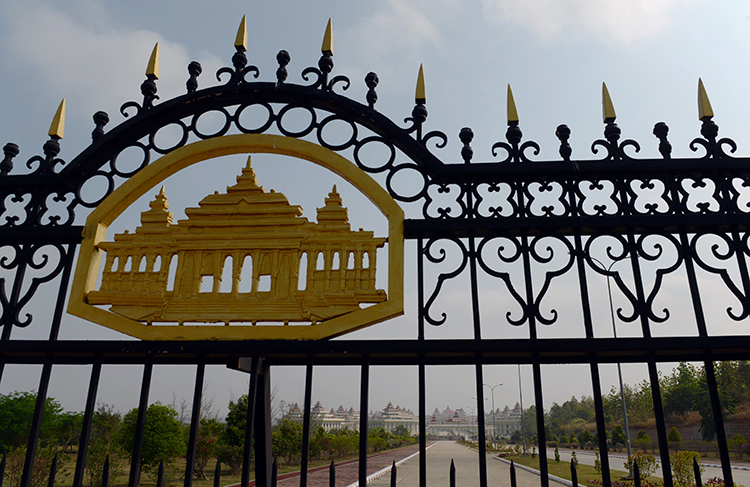Bangkok, July 17, 2017–A ministerial proposal to amend Myanmar’s 2013 Telecommunications Law falls short of the changes needed to guarantee press freedom, the Committee to Protect Journalists said today. The statute has been repeatedly abused to stifle online speech and jail journalists, CPJ has found.
On July 13, the Ministry of Transport and Communications submitted a draft bill to the Upper House of Parliament with recommendations for amending the law, including allowances for accused parties to post bail and a bar on third parties filing cases on behalf of others unless authorized or directly affected by the content in question, according to news reports. Several journalists have been held in pre-trial detention and denied bail under Article 66(d) of the law, which outlines penalties for online defamation, disturbances, and threats.
The amendments also propose lifting a requirement that the ministry must approve cases before they proceed, giving full authority instead to the police, reports said. However, the amendments would not ease penalties for convictions under the criminal provision, which include three-year jail terms and fines.
“While we recognize certain improvements in the ministerial proposal to amend Myanmar’s Telecommunications Law, they don’t go far enough to ensure that the law is no longer used to threaten and imprison journalists,” said CPJ Senior Southeast Asia Representative Shawn Crispin. “For the sake of press freedom, the law should be fully decriminalized and all pending cases against journalists immediately and unconditionally dropped.”
Zaw Min, chairman of the Upper House’s bill committee, said his body would convene a meeting with ministry officials and legal experts to discuss the recommendations, and will file a report to parliament this week, according to news reports.
CPJ has documented several cases of journalists jailed pending trial and facing potential prison sentences on charges under the law. Kyaw Min Swe, editor of The Voice newspaper, has been held in pretrial detention since June 2 on charges filed under Article 66(d) by a military official over an opinion column that satirized a pro-military propaganda film. A Yangon court has rejected six consecutive requests by the editor for bail, according to news reports.
In November 2016, authorities detained Than Htut Aung, chief executive of Eleven Media Group, and Wai Phyo, chief editor of the group’s Daily Eleven newspaper, under the law over an opinion piece that alleged high-level government corruption. The two reporters were held in pretrial detention for 54 days before being released on bail. Their trial is ongoing.
On June 8, a senior Ministry of Information official told a visiting CPJ delegation that legislation would soon be introduced to remove criminal penalties under the law. The CPJ delegation raised a list of anti-press laws that CPJ believes should be repealed or amended, including the 1908 Unlawful Association Act, a provision often used against reporters that criminalizes contact with groups deemed a threat to national security.
On June 26, military officials detained Aye Naing and Pyae Phone Naing from the Democratic Voice of Burma news agency, and Thein Zaw, a reporter for The Irrawaddy media group, under the law after the journalists covered a drug-burning event staged by an ethnic armed organization opposed to the government. If convicted, they each face up to three years in jail.
